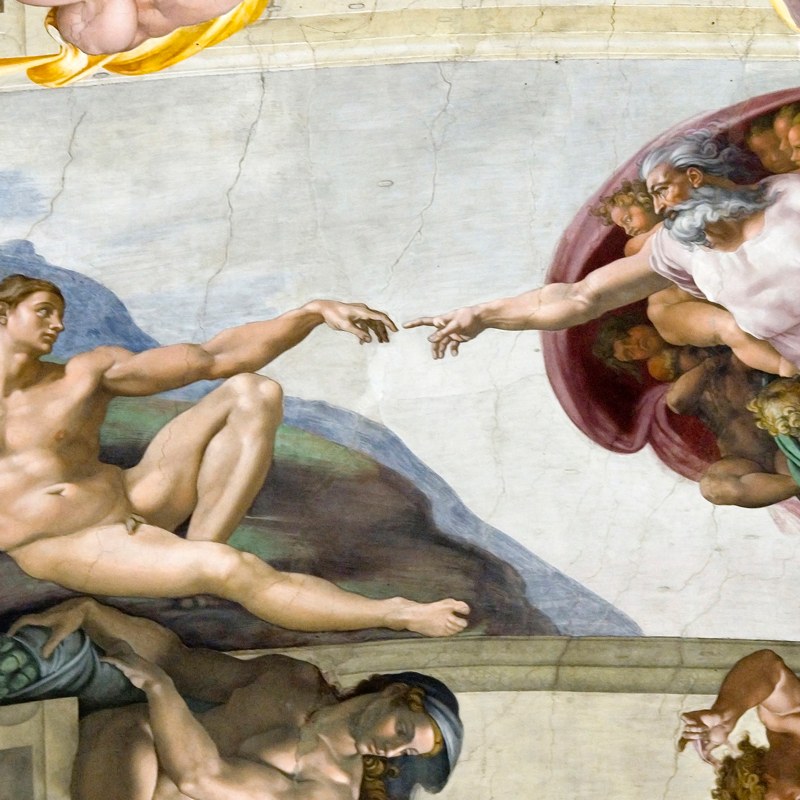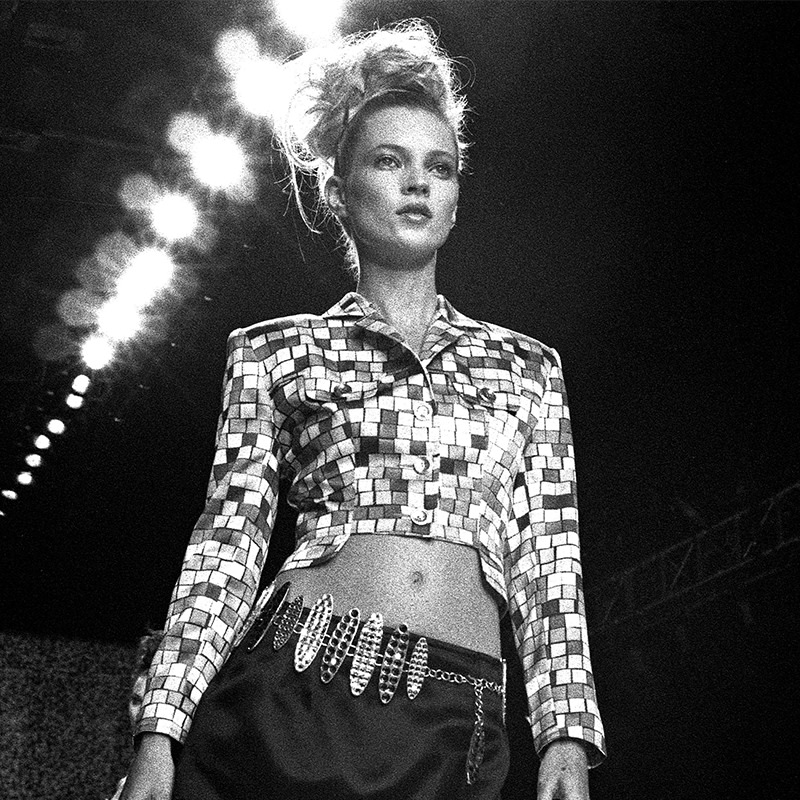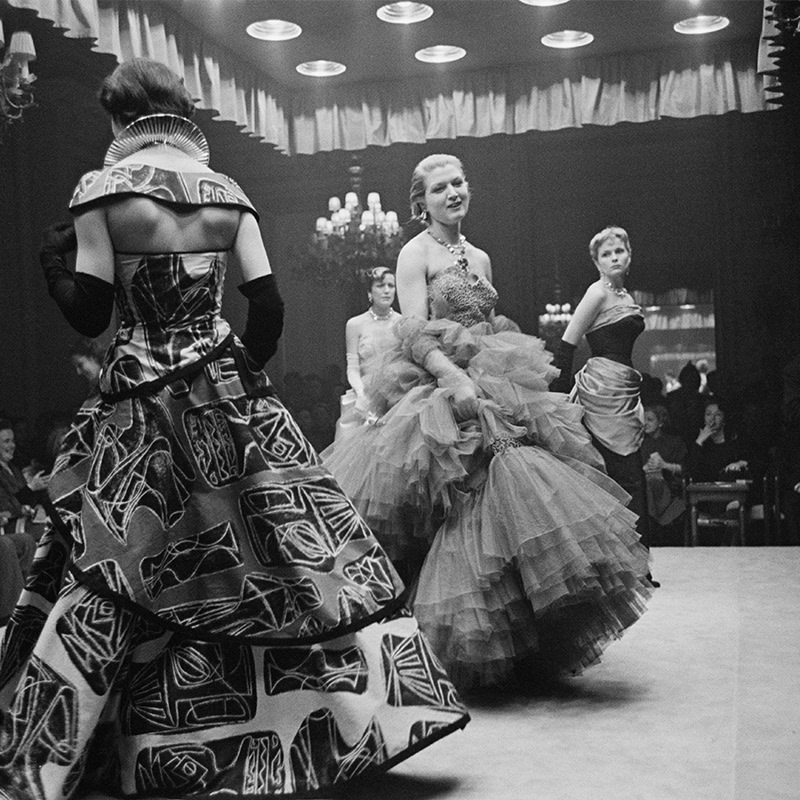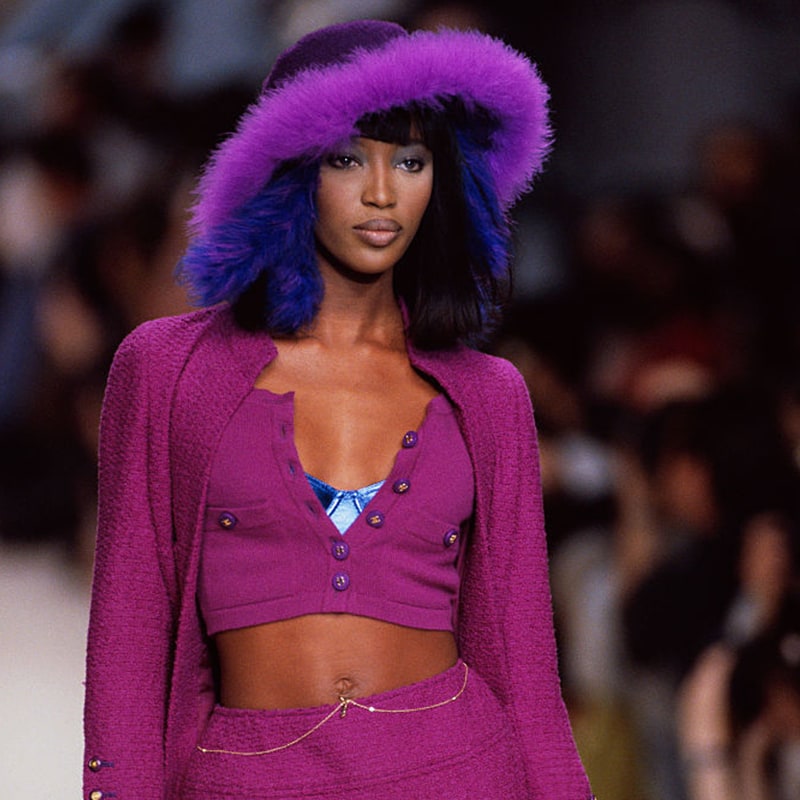The Most Iconic Runway Moments From the ‘90s


1 of 13
Versace Fall/Winter 1991
One of the first designers to sit celebrities in the front rows of his shows and feature supers in his campaigns, Gianni Versace famously bridged the worlds of fashion and pop culture. After opening his boutique in Milan in 1978, the Italian designer began defying the accepted norms of fashion and created provocative, ultra-sexy garments for the women he clothed. (“Armani dresses the wife, Versace dresses the mistress,” one fashion editor remarked at the time.) For his memorable Fall/Winter 1991 show, Versace sent Campbell, Evangelista, Crawford, and Turlington down the runway for the collection’s finale walk. The group first appeared together in George Michael’s wildly popular music video for “Freedom! ‘90,” garnering them mainstream recognition and fame outside the realm of fashion.

2 of 13
Jean Paul Gaultier 1992
Although Jean Paul Gaultier never had any formal training in fashion, his natural talent impressed French designer Pierre Cardin so much that he hired Gaultier as an assistant. He launched his namesake label in 1976 and became the enfant terrible of French fashion, traversing boundaries with his provocative conical bra (famously worn by Madonna during her 1990 “Blonde Ambition” tour), exceptional tailoring, and passion for sociopolitical causes. In September 1992, Gaultier held his first U.S. fashion show to benefit amfAR (American Foundation for AIDS Research), presenting 140+ rubber-themed outfits to 630 guests. In one memorable moment, Madonna stepped onto the stage and spontaneously removed a jacket to reveal her breasts in a framed bra. It was a show for the ages, raising nearly $700,000.

3 of 13
Versace Fall/Winter 1992
Ever the provocateur, Versace staged his Fall/Winter 1992 collection, entitled Miss S&M, to a divided crowd. While photographer Helmut Newton loved the collection, the bondage-inspired dresses scandalized fashion critics at the time. (Post-show, Suzy Menkes reportedly said, “I don’t want women to be sex objects or any of that.”) For the collection, Versace tapped his usual roster of glamazons, including Schiffer, Campbell, Turlington, and Evangelista, to model his fetishistic eveningwear, which involved studs, leather, dog collars, and harnesses incorporated into elegant, black gowns. As it turns out, Versace launched a movement: Fashion A-listers reportedly wore bondage-inspired outfits to an AIDS benefits soon after. Versace joked that, “half of Manhattan is now walking around in a harness.”

4 of 13
Thierry Mugler Spring/Summer 1992
Not only was Thierry Mugler’s Spring/Summer 1992 show, titled Les Cow-boys, memorable for sending a newly divorced Ivana Trump and pornstar Jeff Stryker down the runway, but the Western-inspired collection also debuted the Harley Davidson bustier that would later be featured in George Michael’s legendary “Too Funky” music video. Michael hired Mugler, the French designer known for his dramatic silhouettes and impressive showmanship, to shoot and design clothes for the video, which featured models Evangelista, Tyra Banks, Eva Herzigová, and Nadja Auermann. The motorcycle bustier, complete with side mirrors and handles, was worn by Swedish model Emma Sjöberg for the video while Niki Taylor wore the same one with leather shorts for Mugler’s collection.

5 of 13
Vivienne Westwood Fall/Winter 1993
One of the most memorable moments from the ‘90s was when Campbell took a tumble in her purple python platforms on the Vivienne Westwood Fall/Winter 1993 runway (after which, she simply picked herself up and kept walking with a smile). The British designer’s fascination with Scottish and English history and her penchant for tartan culminated with this collection. Westwood used a mix of made-to-order tartan from Lochcarron of Scotland in a variety of hues and silhouettes. Evangelista wore hunting gear and a mini kilt while Moss walked in a bridal gown made from tulle and tartan. “On the English side, we have tailoring and an easy charm, on the French side that solidity of design and proportion that comes from never being satisfied because something can always become more refined,” Westwood said.

6 of 13
Perry Ellis Spring/Summer 1993
It was the collection that reportedly got then-budding designer Marc Jacobs fired from his gig at Perry Ellis, but it also cemented grunge’s cultural dominance during the early ‘90s. Jacobs put supermodels Carla Bruni, Campbell, Shalom Harlow, and Moss in vintage-print dresses and raglan tees, styling them with Dr. Martens, Birkenstocks, and Converses. The dressed-down runway was panned by critics at the time, with Cathy Horyn writing, “Grunge is anathema to fashion and for a major Seventh Avenue fashion house to put out that kind of statement and that kind of price point is ridiculous.” Jacobs got the boot and went on to form his own line in 1994. Last November, Jacobs re-issued 26 looks from his Grunge Collection, showcasing them on Gen-Z models Gigi Hadid, Binx Walton, and Slick Woods.

7 of 13
John Galliano Fall/Winter 1994
When John Galliano lacked funding to produce an extravagant show, a serendipitous meeting with socialite São Schlumberger led to the borrowing of her 17th-century Rue Ferou mansion as the venue. To mimic a romantic old salon presentation—gatherings during the French Enlightenment, which served as hotbeds of creativity and ideas—there were rose petals, chandeliers, dead leaves, and dry ice. Major models Campbell, Moss, Helena Christensen, Turlington, and Evangelista all walked the show for free. The collection encompassed traditional Japanese glamour bolstered by Galliano’s strict adherence to historical dress, which translated to slip dresses, ‘40s-era smoking jackets, and mini kimonos, complete with cloche hats by milliner Stephen Jones and diamonds borrowed from Paris’ leading jewelers.

8 of 13
Thierry Mugler Couture Fall/Winter 1995
Mugler’s hour-long Fall/Winter 1995 Couture show served as the brand’s 20th anniversary celebration and it produced some of the most avant-garde pieces of the decade, including the Birth of Venus dress that Cardi B wore at this year’s Grammys. Known for his sharp tailoring and riff on futuristic designs, Mugler spliced supermodels with motorcycles and cars through bodices and corsets. Staged at Paris’ Cirque d’Hiver, models Moss, Campbell, Elle MacPherson, and Schiffer strutted alongside legends Tippi Hedren, Patty Hearst, Veruschka, and Jerry Hall. German supermodel Nadja Auermann emerged on the runway dressed as a bionic fembot, encased in a silver metal bodysuit that was designed in collaboration with aircraft specialist Jean-Pierre Delcros.

9 of 13
Gucci Fall/Winter 1996
Under designer Tom Ford, Gucci brought sex appeal to a decade that was otherwise dominated by the minimalism at Calvin Klein and grunge at Perry Ellis. And while his advertisements were polarizing (one lensed by Mario Testino with Carine Roitfeld famously featured a nearly nude Carmen Kass with a “G” shaved into her pubic hair), they turned Gucci into a multibillion empire and Ford into a fashion legend. For Fall/Winter 1996, the designer had Moss, Georgina Grenville, Jodie Kidd, and Carolyn Murphy don button-down shirts, pleat-front plants, and nipped-in blazers in sumptuous velvets to achieve sexy, androgynous dressing. The red velvet suit was later worn by Gwyneth Paltrow at the 1996 MTV Movie Awards and recreated on Gigi Hadid for Ford’s Fall/Winter 2019 collection of his own label.

10 of 13
Christian Dior Spring/Summer 1998
Known for his theatrical showcases and rich historical references, Galliano staged his presentation for the Christian Dior Spring/Summer 1998 Haute Couture collection at the Palais Garnier Opera House in Paris. With Marchesa Casati, an Italian heiress from the early 20th century who infamously wore live snakes as jewelry, as his muse, the collection featured hoop skirts, outerwear trimmed with mink fur, and nipped-in blazers on models Murphy, Erin O’Connor, Herzigova, Auermann, and Astrid Munoz. The Ballets Russes-inspired show was one of Galliano’s most extravagant for the French house, and it ended on a dramatic note. As model Debbie Deitering closed out the show, she was followed by a shower of butterfly-shaped tissue paper confetti.

11 of 13
Alexander McQueen Fall/Winter 1998
Alexander McQueen was inspired by the murders of French Roman Catholic martyr Joan of Arc and the Romanovs, the last imperial family in Russia, for his Fall/Winter 1998 show. The macabre showcase was rife with medieval-style chainmail dresses and designs that featured patterns of the deceased Romanov children. One model was outfitted in a red lace dress that obscured her face and was later worn by Lady Gaga at the 2009 MTV Music Video Awards. The finale is what cemented the show as one of the most memorable fashion moments of the ‘90s: As the last model made her way down the catwalk, a ring of fire lit up around her in reference to Joan of Arc, who was burned at the stake. As the fire grew, she continued to writhe around on the runway, leaving the finale on a sinister, albeit poignant note.

12 of 13
YSL World Cup 1998
The year was 1998 and France was gearing up to face off against Brazil in the World Cup Final. Before France claimed the championship, Yves Saint Laurent made history by staging a runway show to celebrate the house’s 40th anniversary. It was watched by an estimated 1.3 billion TV spectators. Organized inside the Stade de France, it required 900 people backstage, 130 dressers, and 4,000 stadium staff. Bruni, Katoucha, Laetitia Casta, and more modeled 300 of the brand’s best looks, featuring themes of pop art, glamour, and Eastern influence. As the models graced the pitch, they they created a multicolored ribbon formation that spelled out “YSL.” In a final act of fanfare, YSL displayed placards in hues of shocking pink and orange, the French house’s colors, alongside Brazil and France’s flags.

13 of 13
Alexander McQueen Spring/Summer 1999
Alexander McQueen was famous for subverting tradition, imbuing designs with influences from his Scottish heritage and staging spectacles that challenged notions of what constituted a fashion show. His Spring/Summer 1999 went down as one of the most iconic finales of all time. After then-newcomers Gisele Bundchen, Bridget Hall, and Angela Lindvall wore draped gowns, lace frocks, and bedazzled naked dresses that left little to the imagination, the show ended with model Harlow on a rotating platform wearing a strapless white dress while robots, which were typically used to paint cars, splattered green and black paint all over her. It resulted in the finished design and left the audience with less of a fashion show and more of a performance art piece.

The Most Iconic Runway Moments From the ‘90s
1 of 13

Versace Fall/Winter 1991
One of the first designers to sit celebrities in the front rows of his shows and feature supers in his campaigns, Gianni Versace famously bridged the worlds of fashion and pop culture. After opening his boutique in Milan in 1978, the Italian designer began defying the accepted norms of fashion and created provocative, ultra-sexy garments for the women he clothed. (“Armani dresses the wife, Versace dresses the mistress,” one fashion editor remarked at the time.) For his memorable Fall/Winter 1991 show, Versace sent Campbell, Evangelista, Crawford, and Turlington down the runway for the collection’s finale walk. The group first appeared together in George Michael’s wildly popular music video for “Freedom! ‘90,” garnering them mainstream recognition and fame outside the realm of fashion.
Versace Fall/Winter 1991
2 of 13

Jean Paul Gaultier 1992
Although Jean Paul Gaultier never had any formal training in fashion, his natural talent impressed French designer Pierre Cardin so much that he hired Gaultier as an assistant. He launched his namesake label in 1976 and became the enfant terrible of French fashion, traversing boundaries with his provocative conical bra (famously worn by Madonna during her 1990 “Blonde Ambition” tour), exceptional tailoring, and passion for sociopolitical causes. In September 1992, Gaultier held his first U.S. fashion show to benefit amfAR (American Foundation for AIDS Research), presenting 140+ rubber-themed outfits to 630 guests. In one memorable moment, Madonna stepped onto the stage and spontaneously removed a jacket to reveal her breasts in a framed bra. It was a show for the ages, raising nearly $700,000.
Jean Paul Gaultier 1992
3 of 13

Versace Fall/Winter 1992
Ever the provocateur, Versace staged his Fall/Winter 1992 collection, entitled Miss S&M, to a divided crowd. While photographer Helmut Newton loved the collection, the bondage-inspired dresses scandalized fashion critics at the time. (Post-show, Suzy Menkes reportedly said, “I don’t want women to be sex objects or any of that.”) For the collection, Versace tapped his usual roster of glamazons, including Schiffer, Campbell, Turlington, and Evangelista, to model his fetishistic eveningwear, which involved studs, leather, dog collars, and harnesses incorporated into elegant, black gowns. As it turns out, Versace launched a movement: Fashion A-listers reportedly wore bondage-inspired outfits to an AIDS benefits soon after. Versace joked that, “half of Manhattan is now walking around in a harness.”
Versace Fall/Winter 1992
4 of 13

Thierry Mugler Spring/Summer 1992
Not only was Thierry Mugler’s Spring/Summer 1992 show, titled Les Cow-boys, memorable for sending a newly divorced Ivana Trump and pornstar Jeff Stryker down the runway, but the Western-inspired collection also debuted the Harley Davidson bustier that would later be featured in George Michael’s legendary “Too Funky” music video. Michael hired Mugler, the French designer known for his dramatic silhouettes and impressive showmanship, to shoot and design clothes for the video, which featured models Evangelista, Tyra Banks, Eva Herzigová, and Nadja Auermann. The motorcycle bustier, complete with side mirrors and handles, was worn by Swedish model Emma Sjöberg for the video while Niki Taylor wore the same one with leather shorts for Mugler’s collection.
Thierry Mugler Spring/Summer 1992
5 of 13

Vivienne Westwood Fall/Winter 1993
One of the most memorable moments from the ‘90s was when Campbell took a tumble in her purple python platforms on the Vivienne Westwood Fall/Winter 1993 runway (after which, she simply picked herself up and kept walking with a smile). The British designer’s fascination with Scottish and English history and her penchant for tartan culminated with this collection. Westwood used a mix of made-to-order tartan from Lochcarron of Scotland in a variety of hues and silhouettes. Evangelista wore hunting gear and a mini kilt while Moss walked in a bridal gown made from tulle and tartan. “On the English side, we have tailoring and an easy charm, on the French side that solidity of design and proportion that comes from never being satisfied because something can always become more refined,” Westwood said.
Vivienne Westwood Fall/Winter 1993
6 of 13

Perry Ellis Spring/Summer 1993
It was the collection that reportedly got then-budding designer Marc Jacobs fired from his gig at Perry Ellis, but it also cemented grunge’s cultural dominance during the early ‘90s. Jacobs put supermodels Carla Bruni, Campbell, Shalom Harlow, and Moss in vintage-print dresses and raglan tees, styling them with Dr. Martens, Birkenstocks, and Converses. The dressed-down runway was panned by critics at the time, with Cathy Horyn writing, “Grunge is anathema to fashion and for a major Seventh Avenue fashion house to put out that kind of statement and that kind of price point is ridiculous.” Jacobs got the boot and went on to form his own line in 1994. Last November, Jacobs re-issued 26 looks from his Grunge Collection, showcasing them on Gen-Z models Gigi Hadid, Binx Walton, and Slick Woods.
Perry Ellis Spring/Summer 1993
7 of 13

John Galliano Fall/Winter 1994
When John Galliano lacked funding to produce an extravagant show, a serendipitous meeting with socialite São Schlumberger led to the borrowing of her 17th-century Rue Ferou mansion as the venue. To mimic a romantic old salon presentation—gatherings during the French Enlightenment, which served as hotbeds of creativity and ideas—there were rose petals, chandeliers, dead leaves, and dry ice. Major models Campbell, Moss, Helena Christensen, Turlington, and Evangelista all walked the show for free. The collection encompassed traditional Japanese glamour bolstered by Galliano’s strict adherence to historical dress, which translated to slip dresses, ‘40s-era smoking jackets, and mini kimonos, complete with cloche hats by milliner Stephen Jones and diamonds borrowed from Paris’ leading jewelers.
John Galliano Fall/Winter 1994
8 of 13

Thierry Mugler Couture Fall/Winter 1995
Mugler’s hour-long Fall/Winter 1995 Couture show served as the brand’s 20th anniversary celebration and it produced some of the most avant-garde pieces of the decade, including the Birth of Venus dress that Cardi B wore at this year’s Grammys. Known for his sharp tailoring and riff on futuristic designs, Mugler spliced supermodels with motorcycles and cars through bodices and corsets. Staged at Paris’ Cirque d’Hiver, models Moss, Campbell, Elle MacPherson, and Schiffer strutted alongside legends Tippi Hedren, Patty Hearst, Veruschka, and Jerry Hall. German supermodel Nadja Auermann emerged on the runway dressed as a bionic fembot, encased in a silver metal bodysuit that was designed in collaboration with aircraft specialist Jean-Pierre Delcros.
Thierry Mugler Couture Fall/Winter 1995
9 of 13

Gucci Fall/Winter 1996
Under designer Tom Ford, Gucci brought sex appeal to a decade that was otherwise dominated by the minimalism at Calvin Klein and grunge at Perry Ellis. And while his advertisements were polarizing (one lensed by Mario Testino with Carine Roitfeld famously featured a nearly nude Carmen Kass with a “G” shaved into her pubic hair), they turned Gucci into a multibillion empire and Ford into a fashion legend. For Fall/Winter 1996, the designer had Moss, Georgina Grenville, Jodie Kidd, and Carolyn Murphy don button-down shirts, pleat-front plants, and nipped-in blazers in sumptuous velvets to achieve sexy, androgynous dressing. The red velvet suit was later worn by Gwyneth Paltrow at the 1996 MTV Movie Awards and recreated on Gigi Hadid for Ford’s Fall/Winter 2019 collection of his own label.
Gucci Fall/Winter 1996
10 of 13

Christian Dior Spring/Summer 1998
Known for his theatrical showcases and rich historical references, Galliano staged his presentation for the Christian Dior Spring/Summer 1998 Haute Couture collection at the Palais Garnier Opera House in Paris. With Marchesa Casati, an Italian heiress from the early 20th century who infamously wore live snakes as jewelry, as his muse, the collection featured hoop skirts, outerwear trimmed with mink fur, and nipped-in blazers on models Murphy, Erin O’Connor, Herzigova, Auermann, and Astrid Munoz. The Ballets Russes-inspired show was one of Galliano’s most extravagant for the French house, and it ended on a dramatic note. As model Debbie Deitering closed out the show, she was followed by a shower of butterfly-shaped tissue paper confetti.
Christian Dior Spring/Summer 1998
11 of 13

Alexander McQueen Fall/Winter 1998
Alexander McQueen was inspired by the murders of French Roman Catholic martyr Joan of Arc and the Romanovs, the last imperial family in Russia, for his Fall/Winter 1998 show. The macabre showcase was rife with medieval-style chainmail dresses and designs that featured patterns of the deceased Romanov children. One model was outfitted in a red lace dress that obscured her face and was later worn by Lady Gaga at the 2009 MTV Music Video Awards. The finale is what cemented the show as one of the most memorable fashion moments of the ‘90s: As the last model made her way down the catwalk, a ring of fire lit up around her in reference to Joan of Arc, who was burned at the stake. As the fire grew, she continued to writhe around on the runway, leaving the finale on a sinister, albeit poignant note.
Alexander McQueen Fall/Winter 1998
12 of 13

YSL World Cup 1998
The year was 1998 and France was gearing up to face off against Brazil in the World Cup Final. Before France claimed the championship, Yves Saint Laurent made history by staging a runway show to celebrate the house’s 40th anniversary. It was watched by an estimated 1.3 billion TV spectators. Organized inside the Stade de France, it required 900 people backstage, 130 dressers, and 4,000 stadium staff. Bruni, Katoucha, Laetitia Casta, and more modeled 300 of the brand’s best looks, featuring themes of pop art, glamour, and Eastern influence. As the models graced the pitch, they they created a multicolored ribbon formation that spelled out “YSL.” In a final act of fanfare, YSL displayed placards in hues of shocking pink and orange, the French house’s colors, alongside Brazil and France’s flags.
YSL World Cup 1998
13 of 13

Alexander McQueen Spring/Summer 1999
Alexander McQueen was famous for subverting tradition, imbuing designs with influences from his Scottish heritage and staging spectacles that challenged notions of what constituted a fashion show. His Spring/Summer 1999 went down as one of the most iconic finales of all time. After then-newcomers Gisele Bundchen, Bridget Hall, and Angela Lindvall wore draped gowns, lace frocks, and bedazzled naked dresses that left little to the imagination, the show ended with model Harlow on a rotating platform wearing a strapless white dress while robots, which were typically used to paint cars, splattered green and black paint all over her. It resulted in the finished design and left the audience with less of a fashion show and more of a performance art piece.
Alexander McQueen Spring/Summer 1999
Los años 90 marcaron una década crucial en el mundo de la moda, cuando los diseñadores y el mundo adoptaron el minimalismo, el grunge y el glamour. Por primera vez, las pasarelas empezaron a ser accesibles al público y no solo a la élite de la moda, y los diseñadores iniciaron a proyectar sus pasarelas como un espectáculo. Naomi Campbell, Linda Evangelista, Christy Turlington, Claudia Schiffer y Cindy Crawford cristalizaron el movimiento de las supermodelos, mientras las piezas claves de la década, como John Galliano, Tom Ford, Alexander McQueen y Marc Jacobs, definieron una estética que marcaría el mundo de la moda por las siguientes décadas. Sigue leyendo para descubrir los momentos más memorables de las pasarelas de los años 90.
Lo último
-
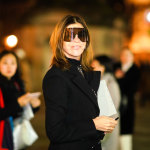
Welcome to CR Runway Online
-
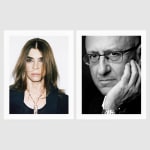
Meet the Contributors
-
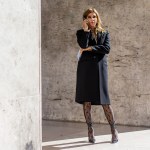
Carine Roitfeld Has Her Eyes on the Future
-
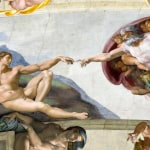
Classico e Moderno
-
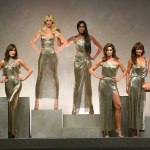
The History of the Supermodel
-
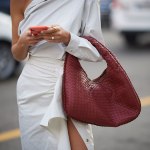
CR Runway Fashion Show Outfit Checklist
-
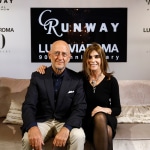
How Andrea Panconesi Turned a Family Business Into a Global Fashion Powerhouse
-
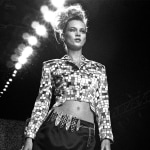
Nineties Supermodels and Their First Runway Shows
-
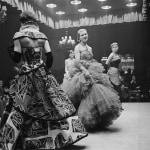
Fashion's Love Affair With Florence
-
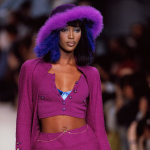
Ten ‘90s Trends That Are Back Again











